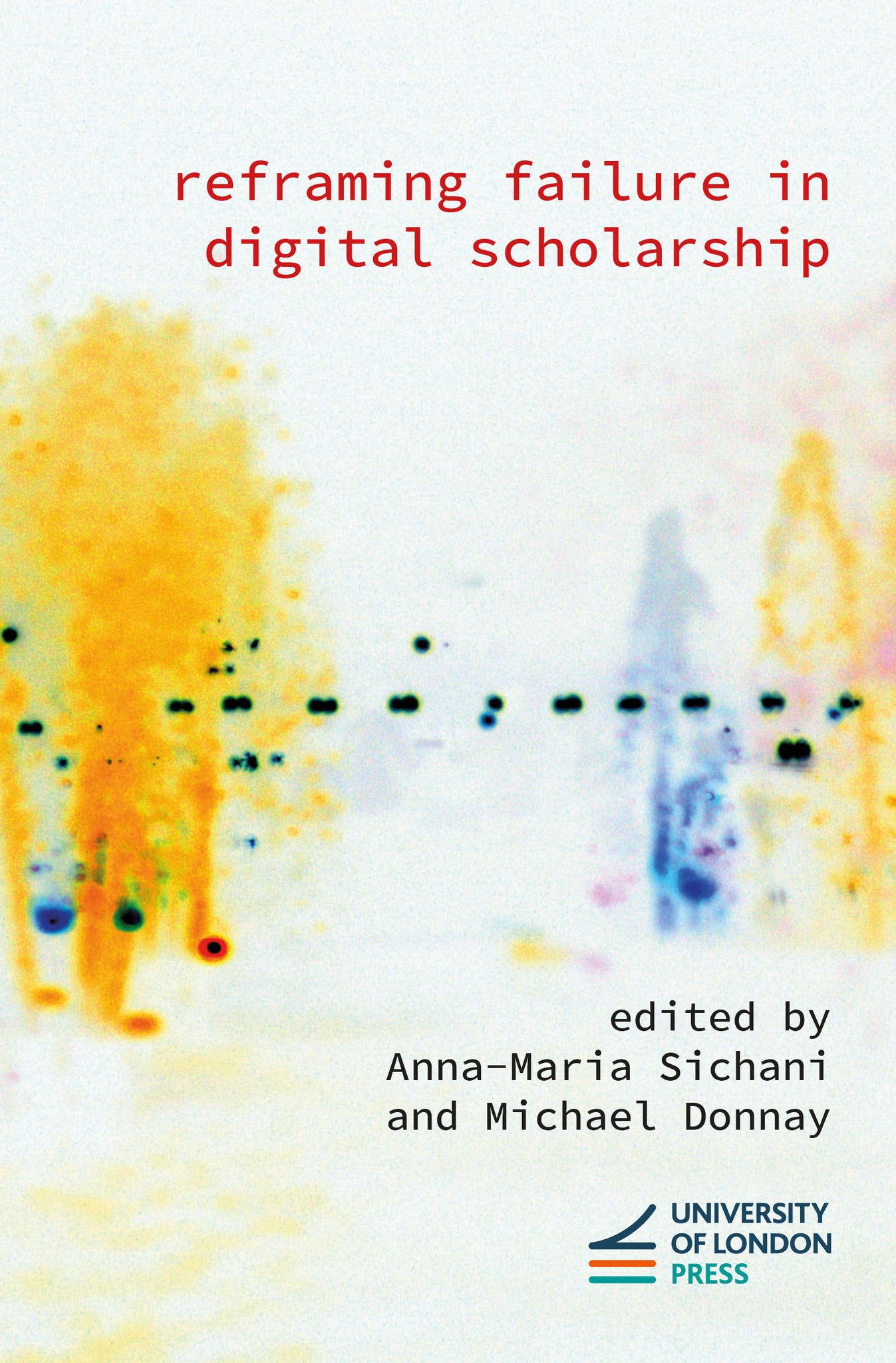We're sorry. An error has occurred
Please cancel or retry.
Reframing Failure in Digital Scholarship

Some error occured while loading the Quick View. Please close the Quick View and try reloading the page.
- Format:
-
20 November 2025

Failure is ordinary. From technological failures and computational obsolescence to rejected applications and challenging collaborations, failure is an unavoidable part of any scholarly endeavour. This is especially true for digital scholarship, as the everyday risk of failure is compounded by the challenges of interdisciplinary research and fragility of digital technology.
Reframing Failure in Digital Scholarship tackles what failure – in all its messy but immensely valuable complexity – means for the digital humanities community head-on. It brings together a diverse, interdisciplinary and international group of scholars and practitioners that each offer short personal and professional reflections on the failed, broken or challenging aspects of scholarly practice. It provides a critical perspective on the ways institutional and material conditions are intractably linked to approaches to digital research, and how those conditions differ within and across national contexts.
In creating a critical, constructive and compassionate vocabulary for failure, this book normalises failure as an object of inquiry, asking: if there is value in failure in digital scholarship, how do we create the space to fail ‘better’?

COMPUTERS / Information Technology, Computer applications in the arts and humanities, EDUCATION / Research, SOCIAL SCIENCE / Research, Research methods: general, Media studies: internet, digital media and society

'Failure' is too easily understood as a function of the single individual. If we are going to have a more humane digital humanities, we all of us need to learn how to understand failure(s). We need perspective, compassion, and clarity. We need, in fact, this volume.
—Shawn M. Graham, Professor of Digital Humanities, Carleton University, Canada.
-
Introduction: Reframing failure
Anna-Maria Sichani and Michael Donnay -
Part I Innovation
-
1 Stop lying to yourself: Collective delusion and Digital Humanities grant funding
Quinn Dombrowski -
2 Risk, failure and the assessment of innovative research
Jane Winters -
3 Innovation, tools, and ecology
Christopher Ohge -
4 Software at play
David De Roure -
Part II Technology
-
5 Brokenness is social
Frances Corry -
6 A career in ruins? Accepting imperfection and celebrating failures in digital preservation and digital archaeology
Jenny Mitcham -
7 Living well with brokenness in an inclusive research culture: what we can learn from failures and processes in a Digital Humanities lab
Arianna Ciula -
8 Can we be failing?
Joris J. van Zundert -
Part III Collaboration
-
9 Doing, failing, learning: understanding what didn’t work as a key research finding in action research
Arran J. Rees -
10 Navigating the challenges and opportunities of collaboration
Jennifer Stertzer -
11 Challenging the pipeline structure: a reflection on the organisational flow of interdisciplinary projects
Caio Mello -
12 When optimisation fails us
Jentery Sayers -
13 Reframing ‘reframing’: A holistic approach to understanding failure
Lauren Tuckley -
Part IV Institutions
-
14 Permission to experiment with literature as data and fail in the process
Jennifer Isasi -
15 What to do with failure? (What does failure do?)
Brittany Amell -
16 The remaining alternatives
Elena Spadini -
17 Who fails and why? Understanding the systemic causes of failure within and beyond the Digital Humanities
Naomi Wells -
18 Experimental publishing: Acknowledging, addressing, and embracing failure
Janneke Adema -
19 Writing about research methods: sharing failure to support success
Anisa Hawes and Riva Quiroga -
20 Bridging the distance: Confronting geographical failures in Digital Humanities conferences
Nabeel Siddiqui -
Conclusion: On failing
Anna-Maria Sichani and Michael Donnay



